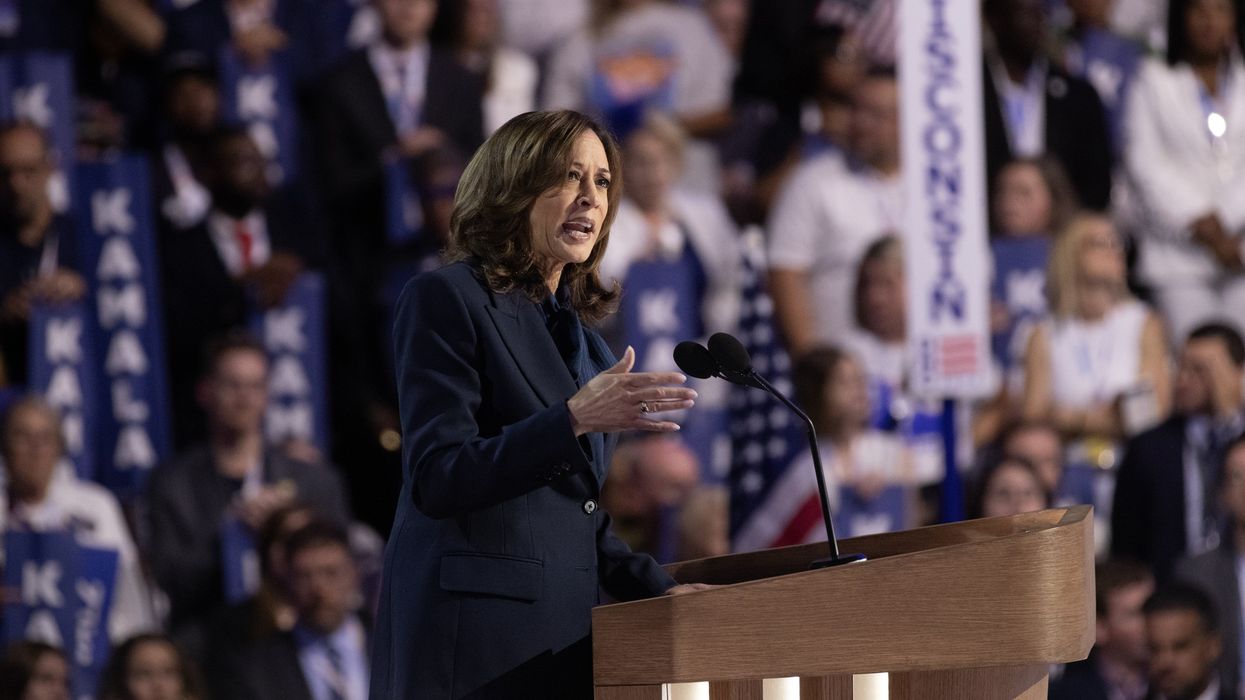Lovit is a senior program officer and historian at the Charles F. Kettering Foundation, where he also hosts the podcast "The Context.”
In many respects, last week’s Democratic National Convention was indeed conventional. The party faithful gathered in a basketball arena in Chicago for speeches carefully calibrated to unite factions and define the central messages of the Harris-Walz campaign. It was a ceremony, a celebration and a storyline — just like the Republicans’ convention last month, and many conventions in years past.
For most of American history, party conventions served a different purpose. They were practical meetings where elites hammered out details of the party platform and wrangled over potential nominees. In a political world where party tickets at every level of government were determined in smoke-filled rooms, the convention was the biggest smoke-filled room of them all.
In the early 20th century, progressive reformers sought to cut through the fog with direct primary elections. By 1917, all but four states had at least partially adopted direct primaries for statewide elections. Primaries were slower to come to presidential selection — the only race in the United States that crosses state lines — but since the 1970s, both major parties have used primaries to select nominees. Convention votes confirming those choices were mere formalities. For the last 50 years, conventions have been like weddings — a party, but with a legally meaningful ceremony at the center.
But Vice President Kamala Harris’ path to the Democratic nomination was unique. With President Joe Biden withdrawing from the race after the primary had already effectively concluded, she is the first major-party presidential nominee in a half-century not to be selected through a primary. And this year’s convention was like a wedding reception without a ceremony; Harris and the Democratic Party had already tied the knot weeks earlier during a virtual roll call vote of delegates.
As evidenced both by polling and by the rapturous reception the Harris-Walz ticket received at the convention, most Democrats are happy with their nominee. This raises a question: If we can dispense with the primary for the highest office in the country, and few people seem to miss it — not even Democratic voters who were deprived of the chance to participate in selecting her — what’s the point of primaries?
Primaries do have some arguments in their favor. For one, rigorous analysis by political scientists Shigeo Hirano and James Snyder Jr. demonstrates that direct primaries promote more qualified candidates, especially in competitive races. And although primary elections are relatively rare internationally, so is the United States’ two-party system. In most other democracies, interparty competition among ideologically similar parties keeps the organizations honest; in the U.S., intraparty competition might be necessary.
But there are also compelling arguments against primaries. During the Jim Crow era, white-only primaries were one method (among many) Southern states used to prevent Black citizens from exercising political power. Today, white voters participate in primary elections at higher rates than most minority groups, who are more likely to identify and register as independent. Some studies suggest that primary elections create extra hurdles for women and candidates of color (like, say, Kamala Harris).
The biggest knock on primaries is that they draw a small and unrepresentative electorate. In most states, voter turnout in primary elections is less than half of what it is in general elections, and the voters who do show up to cast primary ballots tend to be the most ideologically extreme partisans. This means that primaries often function less to produce candidates in the mainstream of public opinion, and more to enforce extreme partisan positions. Instead of selecting candidates in smoke-filled rooms of insiders, these decisions are now made by party loyalists in angry social media feeds.
Even worse, partisan geographic sorting and gerrymandering have conspired to render most general election races in the United States uncompetitive. This is true for both federal and state legislatures. In many of these races, the low-turnout primary election is the only real competition candidates face; according to data from Unite America, in 2022, 83 percent of House races were effectively determined in primary elections by just 8 percent of the voting-age public.
This doesn’t mean we should just do away with primaries. This would remove the only remaining public accountability for noncompetitive races. But the presidential contest this year is certainly competitive — more so with Harris as the Democratic nominee than primary-winner Biden. So primary elections do not seem to have been necessary — or even useful — for Americans to have a real choice at the ballot box this November.
Harris’ unusual path to the nomination provides Democrats, and all Americans, with practical experience of a strong party choosing its nominee, rather than beholden to an ideologically extreme primary electorate. If we like the results, perhaps it’s time to consider reforming our system of primary elections.




















